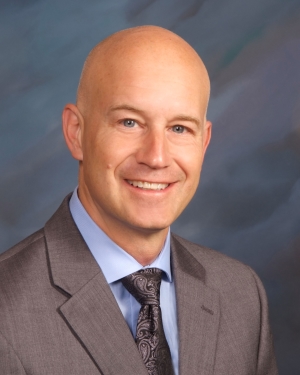Community Coronavirus Update
- Category: General, About Us, Infectious Diseases
- Posted On:
- Written By: Boulder Community Health

Last weekend, BCH provided an email update to community members relating our health system's ongoing preparations against COVID-19. On Saturday, April 11, CEO & President Rob Vissers, M.D., stated there have been indications that our community's ongoing efforts to flatten the COVID-19 curve — wearing masks, practicing social distancing, and constant hand washing — appear to be working as hoped.
From Rob Vissers, M.D. - CEO & President, BCH
Unfortunately, we all see the reports of the pandemic engulfing other parts of our nation. I want to assure you that BCH is continuing to actively prepare for the surge of COVID-19 patients expected to come our way. In addition to the rigorous planning BCH has undertaken to expand our number of intensive care unit (ICU) beds and ventilators, we've been making complementary plans to maximize the impact of our human resources.
Hoping for the Best, but Preparing for the Worst
We quickly recognized there were key areas that would need additional staff during a surge of COVID-19 patients. This led to the hiring of 20 new respiratory therapists. We also began to shift personnel to some of these higher need areas, such as asking experienced physicians normally in our primary care clinics to move to our Urgent Care Centers or to work as hospitalists at Foothills Hospital.
At the same time, we began an in-depth review of the collective skill set within our organization to determine how we could shift doctors, nurses and other staff to where they can make the biggest impact if BCH experiences a surge of critically ill patients.
If we get a wave of COVID-19 patients, we'll move some of our physicians with the most experience in caring for critically ill patients — trauma surgeons, anesthesiologists and emergency medicine specialists — into new roles within Foothills Hospital. For example, anesthesiologists, who have significant expertise in ventilator management but normally spend their workdays in surgery, can provide invaluable expertise on an inpatient critical care unit.
We have another tremendous resource in our large group of physicians who received their medical degree in internal medicine but then pursued advanced training in a "subspecialty" such as cardiology. Before they became subspecialists, these doctors received extensive education in treating the pulmonary issues common among COVID-19 patients. We're currently giving some of these physicians quick refreshers on those elements of critical care, as well as instruction on unique treatments for COVID-19.
BCH has also set up a volunteer pool of physicians, physician assistants (PAs), nurse practitioners (NPs), and registered nurses (RNs) — some retired, others who fill in for our providers on a temporary basis — willing to step up and fill any gaps in care. To ensure safe and effective care, they would be paired with one of our in-house expert practitioners.
Where We've Already Shifted Into Action
Some of the operational changes we made in response to COVID-19 gave us the opportunity to retrain and reassign highly trained and experienced nurses for new roles that will be pivotal in our ability to respond to the pandemic. We've already retrained and reassigned 275 nurses and nurses' aides. By the end of next week, this number will increase to 350 employees ready for redeployment. All reassigned employees have completed multiple rotations on their new nursing units, enabling them to learn, practice and gain competence and confidence in their different roles.
A prime example of this important process occurred when BCH suspended all non-urgent, elective surgical procedures in response to the outbreak. Teams of highly skilled, highly specialized nurses who normally worked in surgery were retrained to safely care for patients in our ICU. As another example, several nurses working in our Information Technology Department who have been away from direct patient care for years are now being reoriented to care for patients with less serious medical issues.
In addition, we're fleshing out highly detailed plans for maximizing the expertise of our "expert" ICU RNs — those who have completed the rigorous critical care training process and have many years of experience in the ICU. We normally have one expert RN caring for two ICU patients. If our patient volumes increase dramatically during a COVID-19 surge, those experts will be teamed with two very skilled nurses redeployed from other areas, along with an experienced nurse's aide. This additional support will allow one expert RN to take care of six ICU patients instead of just two.
Finally, BCH's leadership team continues to run through contingency plans for teaming physicians, PAs, NPs, RNs and health care support professionals for worse-case patient-load scenarios.
Support for Those Dedicated to This Mission
At a time when we're calling on so many nurses and physicians to take on different roles and responsibilities, their cooperation, leadership and teamwork have truly been phenomenal. Members of Team BCH are pouring their heart and soul into the mission of caring for our sickest patients and getting our community through this pandemic.
We also are taking new steps to support employees across our organization during this stressful time. BCH has expanded our support services for employees, which range from wellness offerings to emotional and financial support. Examples include:
- Weekly livestreamed meetings with BCH leadership
- Financial support for employees needing childcare services
- Call-in support groups
- Yoga and mindfulness sessions
- Free meals in the Foothills Hospital cafeteria
Benefiting from Community Support
Local residents and businesses have been doing their part to help our physicians and employees push through these tough times and emerge even stronger. We are heartened by the outpouring of support, acts of generosity and messages of gratitude. They are and will be powerful encouragements for our BCH family as we continue to battle COVID-19.
For more information about COVID-19 and BCH-related updates, please visit our COVID-19 Resources page.